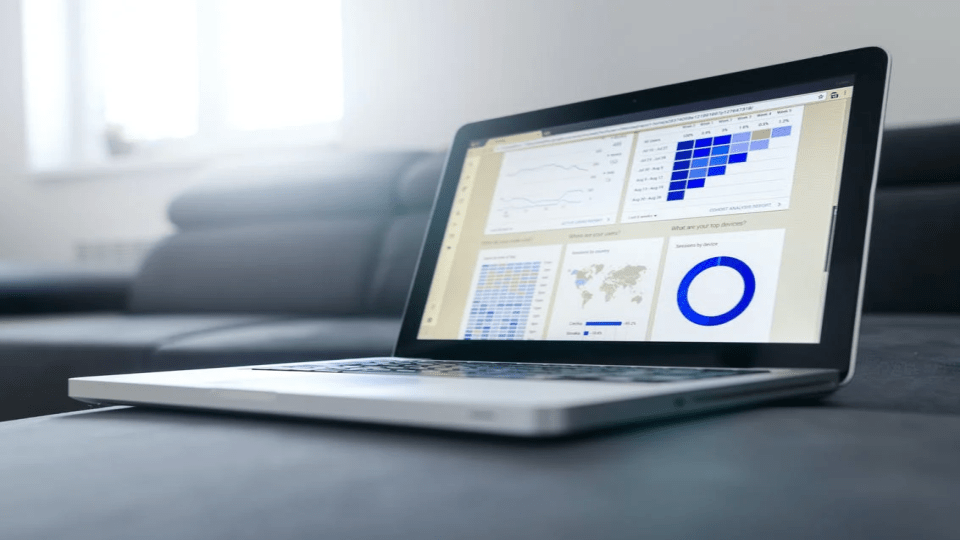Modern ERP software facilitates traceability. Traceability is very important to most manufacturing companies. For many manufacturing companies, it is essential to find anomalies and quickly identify their causes. To facilitate traceability manufacturing companies need good tools that can guarantee the appropriate collection and distribution of relevant data.
In this article, I will explain the role played by enterprise resource planning (ERP) software in the digital manufacturing industry. I will demonstrate how ERP software can enhance traceability.
Traceability is defined as the ability to track a product
Traceability is the ability to track a product throughout its value chain, from sourcing raw materials to the disposal of the final product.
In a world where quality and safety are important criteria, traceability is of paramount importance and is gaining momentum in many industries. Traceability is a very important requirement in the automotive industry, electronic component assembly, food production, and pharmaceutical industry.

Modern ERP software improves traceability
Traceability, often synonymous with transparency, is an essential component of ERP systems. ERP systems will usually enable the precise identification of all events involved in any given data flow, from procurement to the final delivery and consumption. Such traceability mechanisms (also referred to as chain of custody) enable us to attribute data creation, modification, or deletion to intervening parties.
Industry 4.0 has sensing and interconnected digital production systems at its core
The concept of industry 4.0 was born in 2010. It’s a change of era based on technological innovation in production systems and the dialogue between companies, sectors, and markets. In other words, all manufacturing processes are interconnected and controlled by using new digital technologies, sensors, and low-cost wireless connections. These connections also interface with business management software.
Modern ERP software facilitates industry 4.0 improvement tools
Most of us know that ERP software is software that centralizes strategic and operational information and data in a single database. This database is accessible to relevant users and can be updated in real-time.
With the evolution of industries we have to look for reliable ERP software to implement the various answers to our different needs (time, cost, quality).
Industry 4.0 needs a good ERP to function. The criteria for choosing a good ERP are:
- The ERP is equipped with specific functionalities for the relevant industry sector
- Scalable and with the largest possible functional spectrum
- Open to developments, to adapt it to the emerging needs and interconnect it with new and other software
- The ERP must facilitate powerful and intuitive business intelligence such that every employee can execute required analysis procedures
I recommend an article that goes more into detail on industry 4.0 and its impact on ERP software. The article can be found here: “The Impact of Industry 4.0 to the ERP Approach” by M. Gervalla and K. Ternai.
ERP vendors implemented industry 4.0 with cloud technology
To gain agility and to boost the sales process ERP vendors have created cloud-based ERP concepts that aim at sharing and analyzing the data that fuels efficiencies in industry 4.0.
The following table shows a two exemplary vendors that have modified their ERP to be industry 4.0 compatible. The table explains their additions.
| Editors | Modifications |
| Sage 100 | Connected platform |
| Centro software | The Black Box C4 card Computerized maintenance management software |
Coming up next: Industry 5.0
Industry 5.0 is a term first introduced in 2015 in the article published on LinkedIn by Michael Rada. Since then the term industry 5.0 has gained popularity.
The industry 5.0 concept refers to the cooperation and interaction among humans, robots, and intelligent machines. It refers to robots that help humans work better and faster by leveraging advanced technologies such as the Internet of Things (IoT) and big data. Industry 5.0 furthermore adds a more human/personal touch to the existing automation and efficiency pillars of industry 4.0.
Industry 5.0 influences modern ERP software and ERP solutions
Learning to not only collect but also transfer, store and analyze data is one of the most effective things manufacturers can do to prepare for industry 5.0. For that, improving ERP software and making it compatible with industry 5.0 innovations is fundamental.
Concluding remarks on modern ERP and digital manufacturing
Each component, each spare part, and each lot of raw material must be traceable to identify the origin of quality related production issues. Several technologies ensure traceability. Examples are barcodes, radio identification, etc. ERP software remains an essential tool for recording and storing related data. With the evolution of industries (from industry 4.0 to industry 5.0), we need to look for new technologies that can be used to improve our ERP infrastructure to ensure instant data collection, data storage, analysis, distribution, and communication.

Graduate of a research master’s in Quantitative Economics, specializing in transport and logistics science with competence in Cplex, Ampl, and Julia.
Higher technician in mechanical engineering, specializing in industrial maintenance
Multi-skilled logistics manager, passionate with software and new trends in CMMS, CAPM, and ERP





Leave a Reply